Keynote Speakers
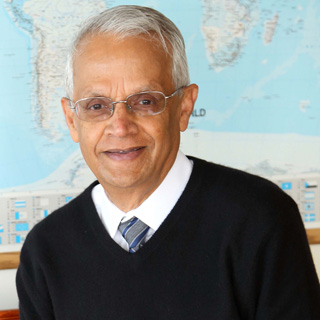 Ram Ramanathan
Ram Ramanathan
Distinguished Professor of Atmospheric and Climate Sciences at the Scripps Institution of Oceanography, University of California, San Diego
Dr. Ramanathan discovered the greenhouse effect of CFCs (cholorofluorocarbons; belongs to family of halocarbons) in 1975 and showed that a ton each of CFC-11 and CFC-12 has more global warming effect than 10000 tons of CO2. This discovery established the now-accepted fact that non-CO2 gases are a major contributor to planet warming and also enabled the Montreal protocol to become the first successful climate mitigation policy. For this work, he was awarded the Tyler Prize by Nobel Laureate Sherwood Rowland in 2009. He has led esteemed research throughout his career, including a NASA study and international field campaigns, and his work has led to numerous policies including the formation of the Climate and Clean Air Coalition by the United Nations. Ram was honored as the science advisor to Pope Francis’ holy see delegation to the historic 2015 Paris climate summit, was named the UN Climate Champion in 2013, and has been elected to the US National Academy and the Royal Swedish Academy which awards the Nobel prizes.
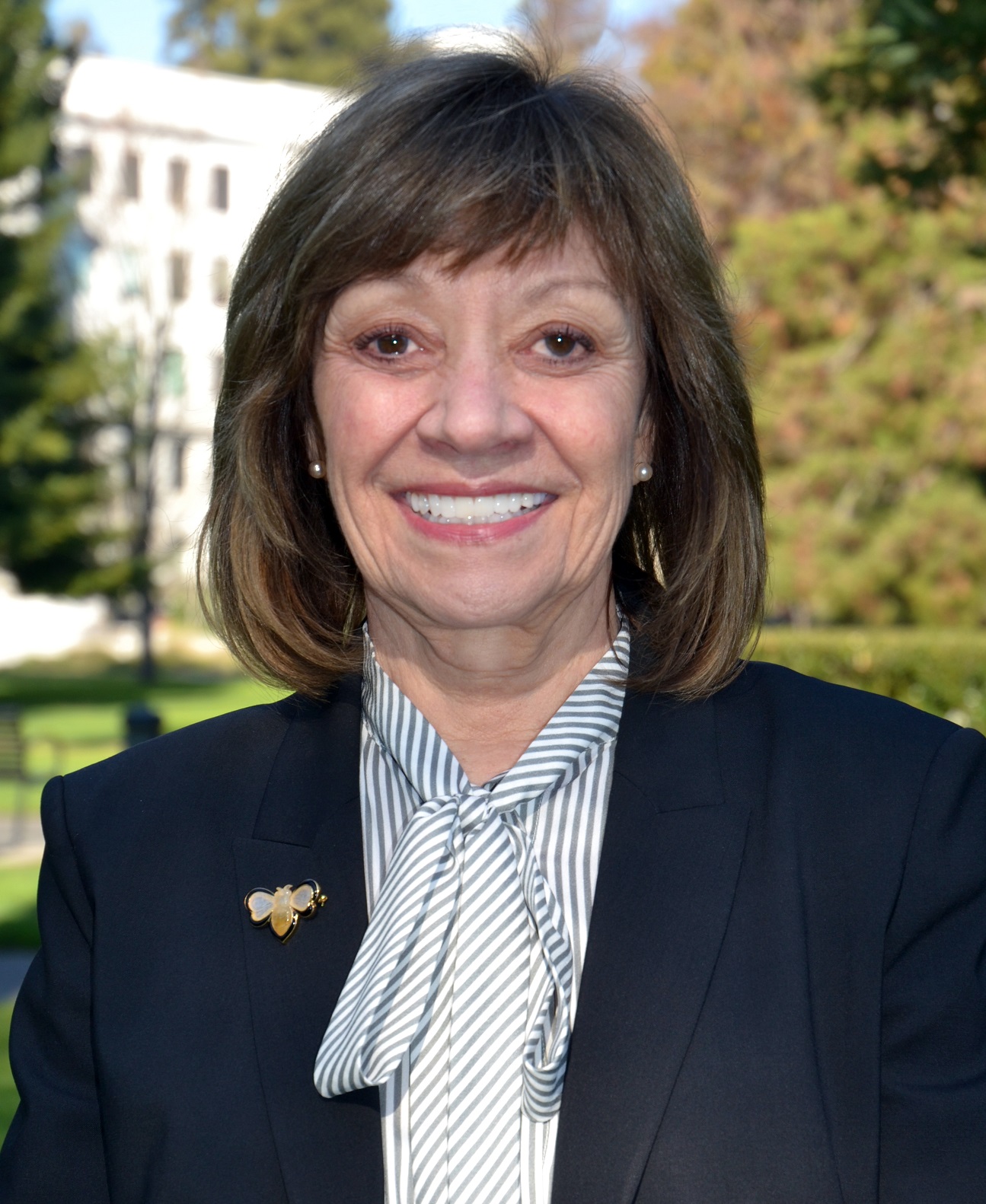 Karen Ross
Karen Ross
Secretary, California Department of Food and Agriculture
Karen Ross was appointed Secretary of the California Department of Food and Agriculture by Governor Edmund G. Brown Jr. in 2011 and was re-appointed by Governor Gavin Newsom in 2019. Before joining CDFA, Secretary Ross was chief of staff for U.S. Agriculture Secretary Tom Vilsack, a position she accepted in 2009. Prior to that appointment, she served as President of the California Association of Winegrape Growers from 1996- 2009, and as Vice-President of the Agricultural Council of California from 1989-1996. Her prior experience before moving to California included staff work for a United States Senator, a presidential candidate, and government relations for rural electric cooperatives and public power districts. Secretary Ross is passionate about fostering the reconnection of consumers to the land and the people who produce their food, and to improving the access of all California citizens to healthy, nutritious California-grown agricultural products, celebrated for their diversity and abundance in serving local, national and global markets.
Program Speakers
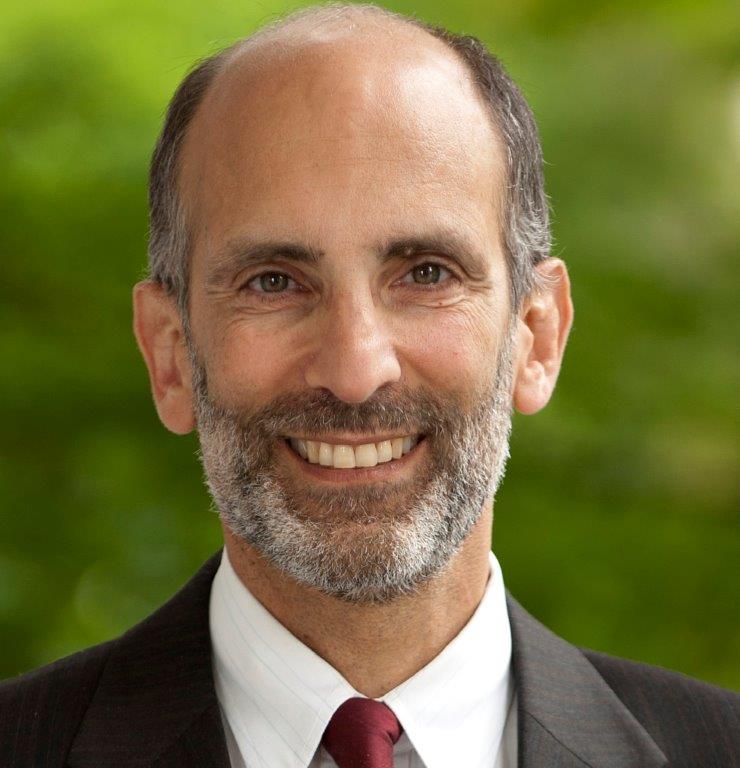 Ken Alex
Ken Alex
Director, Project Climate, University of California, Berkeley
Ken Alex is the director of Project Climate at UC Berkeley’s Center for Law, Energy and Environment, focusing on the most promising climate solutions and moving them more quickly to policy and scale. From 2011 to 2018, Ken was a Senior Policy Advisor to Governor Jerry Brown, the Director of the Governor’s Office of Planning and Research, and the Chair of the Strategic Growth Council, focusing on climate, energy, environment, and land use issues. Before joining the Governor’s Office, Ken was the Senior Assistant Attorney General heading the environment section of the California Attorney General’s Office, and the co-head of the Office’s global warming unit. From 2000 to 2006, Ken led the California Attorney General’s energy task force, investigating price and supply issues related to California’s energy crisis. Ken is a graduate of Harvard Law School and holds a B.A. in political theory from the University of California at Santa Cruz.
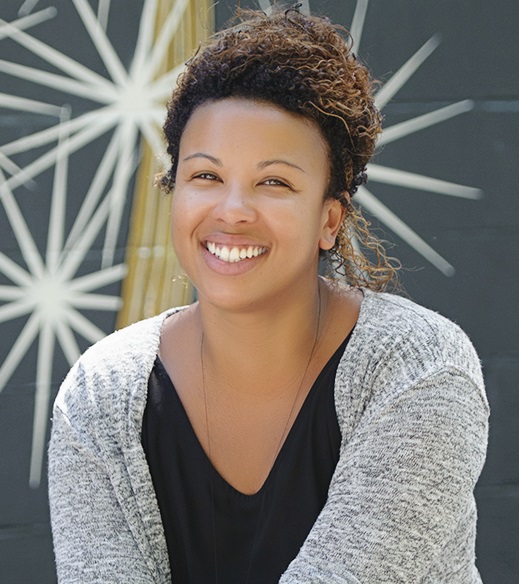 Jackie Cole
Jackie Cole
Principal, Veritable Good Consulting
Jackie Cole is a Social and Environmental Justice Consultant who works with local communities to advance health equity through land use policies, leadership development, and advocacy. Jackie currently works at Veritable Good Consulting, a firm dedicated to seeing the implementation of Environmental Justice in the Sacramento City and County General Plans. She supports her work through community engagement and partnerships in identified EJ communities; participating on the Board of Directors for the Sacramento Community Land Trust and the City of Sacramento's Active Transportation Commission; and working with statewide partners such as the California Environmental Justice Alliance and ClimatePlan who are committed to building inclusive, equitable, sustainable communities in California. Jackie is a Sacramento native, cultivator of experience, and champion of equity. She also holds a Bachelor’s Degree in Sociology from CSU Sacramento.
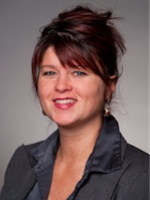 Sarah Davidson Evanega
Sarah Davidson Evanega
International Professor of Plant Breeding and Genetics, Cornell University
Sarah Davidson Evanega serves as International Professor of Plant Breeding (adjunct) and Senior Associate Director of International Programs of the College of Agriculture and Life Sciences at Cornell University. She is the Sr. Associate Director of the Durable Rust Resistance in Wheat Project a 66 million dollar project funded by the Bill & Melinda Gates Foundation and the UK Department for International Development that is based in International Programs (IP-CALS) at Cornell University, but involves project partners from over 20 institutions around the world, all working together to protect the world’s wheat from stem rust. She teaches courses on plant biotechnology and scientific writing and is particularly concerned about strengthening leadership development programs in developing countries where IP-CALS works. Sarah also leads IP-CALS gender working group, AWARE (Advancing Women in Agriculture through Research and Education), and serves PI and Director for the Cornell Alliance for Science—a global communications effort that promotes evidence-based decision-making in agriculture. She received her PhD in the field of Plant Biology from Cornell University. Her primary research focuses on the controversy around biotechnology in developing countries.
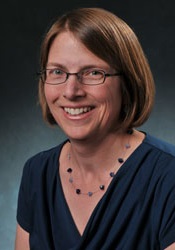 Lisa Dilling
Lisa Dilling
Associate Professor of Environmental Studies, University of Colorado, Boulder
Lisa Dilling is Associate Professor of Environmental Studies, a Fellow of the Cooperative Institute for Research in Environmental Sciences (CIRES) and a member of the Center for Science and Technology Policy Research at the University of Colorado, Boulder. She is PI and Director of the Western Water Assessment, a NOAA Regional Integrated Sciences and Assessment project that studies and facilitates the use of climate information in decision making in the Intermountain West. Her scholarship focuses on decision making, the use of information and science policy. Her research topics include drought and urban water management, climate adaptation in cities and on public lands, carbon management, and geoengineering governance. She is the author of over 40 peer-reviewed journal articles and book chapters, co-editor of the book, Creating a Climate for Change: Communicating Climate Change, Facilitating Social Change and was Co-leader and co-author of the State of the Carbon Cycle Synthesis and Assessment Product 2.2 for the U.S. Global Change Research Program. She was the recipient of a 2016 Leverhulme Visiting Professorship hosted by Oxford University, UK. She holds a PhD in biology from the University of California Santa Barbara and a BA in biology from Harvard University.
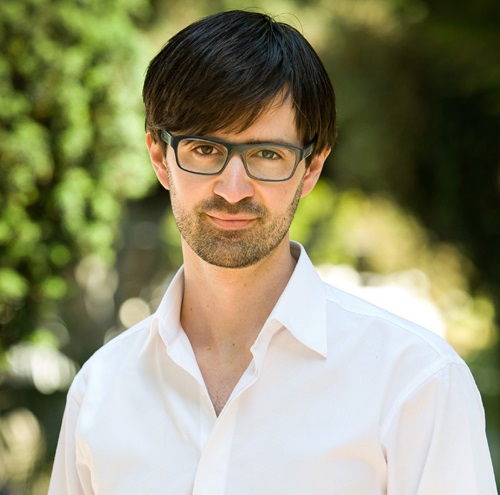 Nathanael Johnson
Nathanael Johnson
Senior Writer, Grist
Nathanael Johnson is a journalist who lives in Berkeley, California with his wife and two daughters. He is the senior writer for Grist and has written two books: All Natural and Unseen City. He’s written pieces for a bunch of fancy magazines and radio shows, which have won some awards that sound more important than they really are.
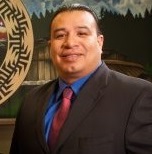 Javier Kinney
Javier Kinney
Executive Director, Yurok Tribe
Javier I. Kinney is a Yurok Tribal citizen and serves as the Executive Director for the Yurok Tribe. He has attained a Bachelor of Arts Degrees in History and Native American Studies from the University of California, Davis, a Master of Arts degree in Law & Diplomacy, specializing in Development Economics and International Law from Tufts University-Fletcher School of Law & Diplomacy, and a Juris Doctorate from Suffolk Law School. Mr. Kinney has extensive experience advising Tribal governments, and his visionary work and interests have provided him the opportunity to travel with indigenous delegations and other missions to Venezuela, Colombia, Bolivia, Mexico, Jamaica, Hungary, Canada, Brazil, Norway and Germany. He has presented at the Nexus Global Youth Summit held at the United Nations Headquarters and represented the Yurok Tribe as a tribal delegate to the United Nations Council of Parties 23 Climate Change Conference in Bonn, Germany. Kinney currently serves on the Yurok Justice Advisory Board, advises the Yurok Tribe’s Community Development Financial Institution, and sits on the board of the Yurok Tribe’s non-profit organization, Kee-Cha E Nar.
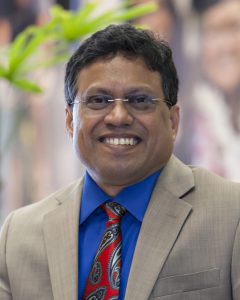 Prasant Mohapatra
Prasant Mohapatra
Vice Chancellor for Research, University of California, Davis
Dr. Prasant Mohapatra is serving as the Vice Chancellor for Research at University of California, Davis. He is also a Distinguished Professor in the Department of Computer Science, and his prior roles at UC Davis include Dean and Vice Provost of Graduate Studies, Associate Chancellor, Interim Vice Provost and CIO, and Department Chair of Computer Science. In the past, Dr. Mohapatra has been on the faculty at Iowa State University and Michigan State University. He has also held Visiting Scientist positions at Intel Corporation, Panasonic Technologies, Institute of Infocomm Research (I2R), Singapore, and National ICT Australia (NICTA). He has been a Visiting Professor at the University of Padova, Italy and Yonsei University, and KAIST, South Korea. Dr. Mohapatra received his doctoral degree from Penn State University in 1993, and received an Outstanding Engineering Alumni Award in 2008. He is also the recipient of Distinguished Alumnus Award from the National Institute of Technology, Rourkela, India. Dr. Mohapatra received an Outstanding Research Faculty Award from the College of Engineering at the University of California, Davis. He received the HP Labs Innovation awards in 2011, 2012, and 2013. He is a Fellow of the IEEE and a Fellow of AAAS.
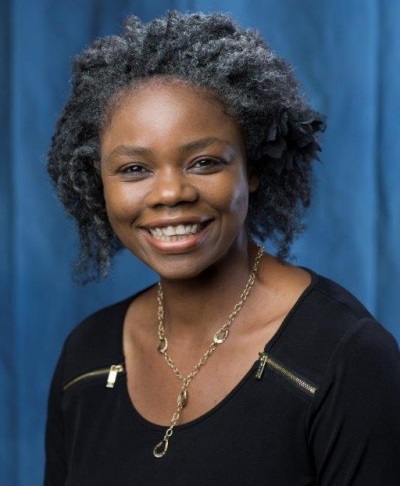 Czerne Reid
Czerne Reid
Lecturer, Department of Psychiatry, University of Florida College of Medicine and Co-Chair of the Education Committee of the National Association of Science Writers
Dr. Czerne Reid is a Lecturer and Program Director in the University of Florida (UF) College of Medicine Department of Psychiatry, and affiliate faculty in the UF College of Journalism and Communications, where she teaches science writing. She is also a freelance science writer, her work recently appearing in National Geographic and in a radio interview on NPR South Florida Affiliate WLRN. She earned her Ph.D. in environmental chemistry at Emory University, and a graduate certificate in science communication at the University of California, Santa Cruz. Her bachelor’s degree in chemistry is from the University of the West Indies, Mona, in her native Jamaica. She has worked as a science writer and reporter at various outlets across the U.S., including The (Columbia, South Carolina) State newspaper, the Milwaukee Journal Sentinel, The Salinas Californian, Stanford News Service, Stanford School of Medicine Office of Communication and Public Affairs, and UF Health Communications. Honors include an Exemplary Teacher Award from the UF College of Medicine, Educational Innovator and Educator Awards from the UF Health Educational Scholarship Program, a Kaiser Media Fellowship and awards from the South Carolina Press Association and the South Carolina Medical Association. Dr. Reid is an Entrepreneurship Faculty Fellow of the UF Warrington College of Business. She serves as education committee co-chair for the National Association of Science Writers, coordinating a stable of career development programs for students, and co-chaired the Regional Committee on Latin America and the Caribbean of the World Conference of Science Journalists 2017.
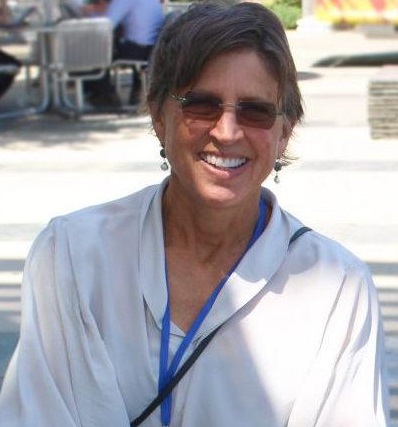 Pamela Ronald
Pamela Ronald
Distinguished Professor, Plant Pathology, University of California, Davis
Dr. Ronald’s isolation of the rice Xa21 immune receptor in 1995 and of a novel microbial immunogen in 2015 revealed a new mechanism with which plants and animals detect and respond to infection. She is also known for her leading role in isolation of the rice Submergence Tolerance 1 gene. Her research facilitated the development of high yielding Sub1 rice varieties grown by more than six million subsistence farmers in India and Bangladesh. Ronald graduated from Reed College (B.A. Biology), Stanford University (M.S. Biology), Uppsala University (M.S. Phys. Botany), UC Berkeley (Ph.D. Mol. Phys. Plant Biology) and was a postdoc at Cornell University (Plant Breeding). She joined the faculty of UC Davis in 1992. In 2019, she was awarded an honorary doctorate from the Swedish Agricultural University. She is a Key Scientist at the Joint BioEnergy Institute and a faculty affiliate of the Center on Food Security and the Environment, Stanford University. Ronald was named a National Geographic Innovator and one of Grist’s 50 innovators who will lead us toward a more sustainable future. She received the USDA National Research Institute Discovery Award, the Louis Malassis International Scientific Prize, and the Tech Award for innovative use of technology to benefit humanity. She was named one of the world’s 100 most influential people in biotechnology by Scientific American. She is a member of the National Academy of Sciences. She is coauthor with her husband, Raoul Adamchak, an organic farmer, of Tomorrow’s Table: Organic Farming, Genetics and the Future of Food. Her 2015 TED talk has been viewed by 1.7 million people and translated into 26 languages. She founded the UC Davis Institute for Food and Agriculture Literacy to provide the next generation of scientists with the training they need to become effective communicators. In 2019, Ronald was awarded the American Society of Plant Biologists Leadership in Science Public Service Award.
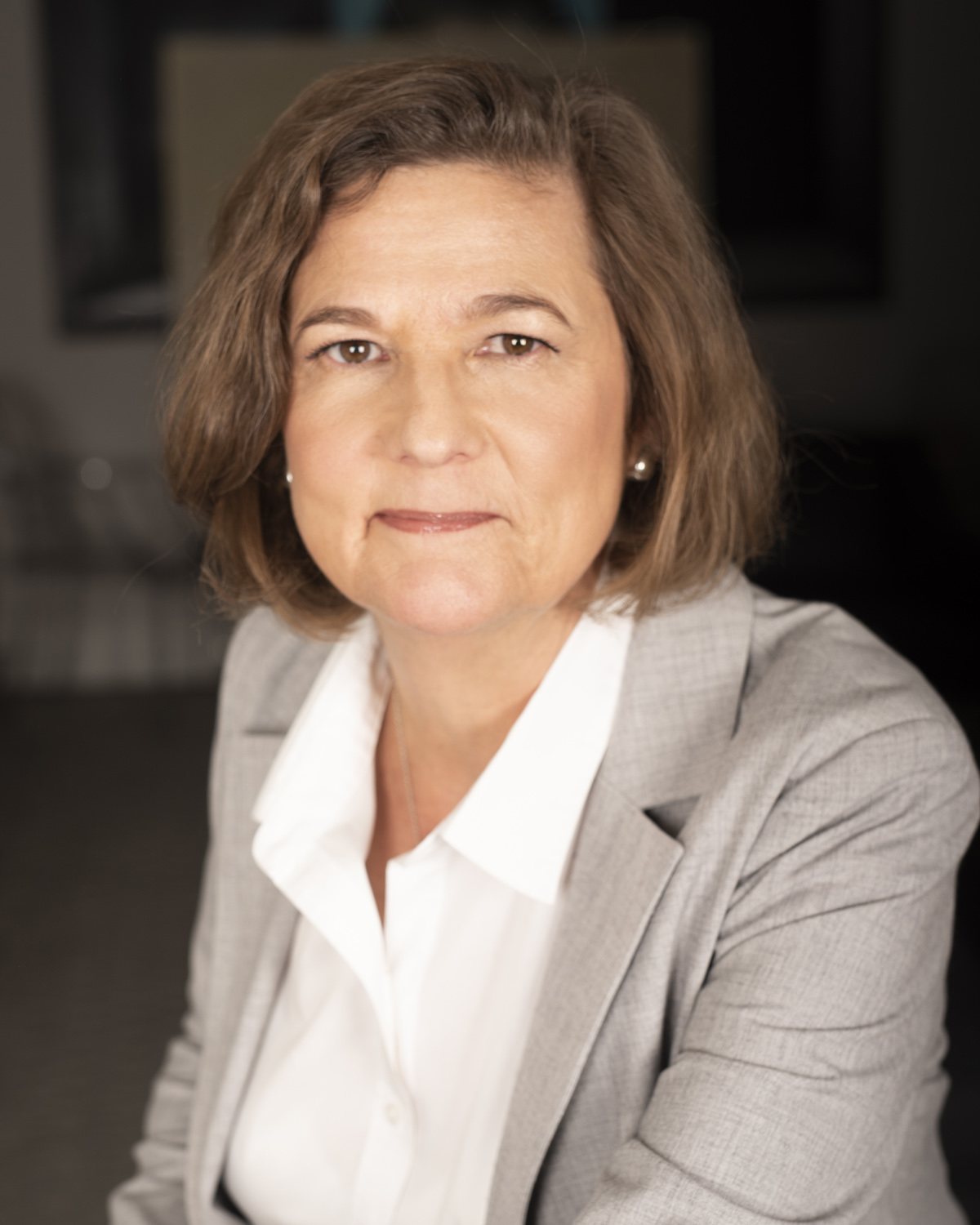 Robin Schoen
Robin Schoen
Director, Board on Agriculture and Natural Resources, National Academies of Science, Engineering, and Medicine
Robin Schoen is the Director of the Board on Agriculture and Natural Resources (BANR) of the Congressionally-chartered, not-for-profit National Academies of Science, Engineering, and Medicine. BANR is the program unit of the Academies responsible for bringing scientific experts together around issues related to agriculture, forestry, wildlife, and the use of land, water, and other natural resources, in response to requests from Congress and the federal agencies, states, and the private sector. BANR’s recent work is diverse and includes a review of the citrus greening research portfolio of the Florida citrus growers, a study on the potential use of genetically engineered trees to address forest health, a technical document of the nutrient requirements of poultry, and a study to identify science breakthroughs to advance agricultural research by 2030. Currently, Robin is serving as the study director for an assessment of the demand for and capacity to supply native plant seeds for ecological restoration, a study requested by the Bureau of Land Management. Robin joined BANR in 2005 from the Academies’ Board on Life Sciences and Office of International Affairs, and before that, NIH. A native Washingtonian, Robin received a B.S. in biology and chemistry from Frostburg State College, Maryland, and an M.A. in Science and Technology Policy from George Washington University.
 Pamela Wu
Pamela Wu
Director, News and Media Relations, UC Davis Health and Substitute Host, Insight, Capital Public Radio
Pamela Wu’s career spans the fields of broadcast journalism, public relations, and communications training. She is the Director of News and Media Relations for UC Davis Health. Previously, she was Executive Director of Marketing and Communications at UC Davis School of Law. Before joining UC Davis, she served as a television news anchor and reporter, covering stories ranging from presidential elections to red carpet events in Hollywood. She was nominated for an Emmy and won the Unity Award in Media for political reporting. She continues her career in broadcast journalism as the substitute host for the public affairs show Insight on Capital Public Radio. She has served on both the national and chapter boards of the Asian American Journalists Association (AAJA). Pam holds a degree in Rhetoric and Communication from UC Davis, where she was a member of the Integrated Studies Honors Program.
Remarks
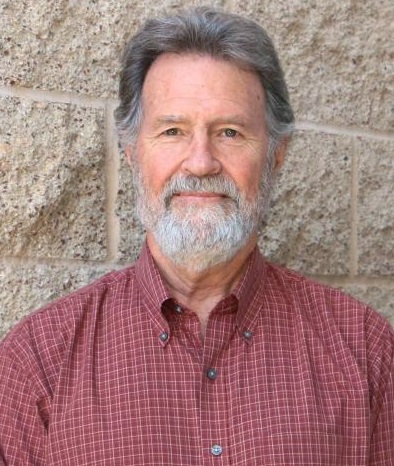 Kent Bradford
Kent Bradford
Distinguished Professor Emeritus, Plant Sciences, University of California, Davis
Kent J. Bradford is a Distinguished Professor Emeritus in the Department of Plant Sciences at the University of California, Davis. Originally from Texas, he earned his B.S. degree in Biochemistry and M.S. degree in Horticulture from Michigan State University and his Ph.D. degree in Plant Physiology from the University of California, Davis. After a postdoctoral fellowship at the Australian National University, he joined the faculty at UC Davis in 1982 and served as the Chair of the Department of Vegetable Crops from 1993 to 1998. In 1999, he founded the UC Davis Seed Biotechnology Center and served as its director until his retirement in 2019. Dr. Bradford also served as the Interim Director of the UC Davis World Food Center from 2016-2018, and now serves as associate director. He received a Fulbright Scholar award in 1999 to teach in Argentina and the career Seed Science Award from the Crop Science Society of America in 2002. He was elected a Fellow of the American Association for the Advancement of Science in 2003, and received the faculty Award of Distinction from the College of Agricultural and Environmental Sciences at UC Davis in 2007. Dr. Bradford’s research has spanned diverse areas of seed science from seed germination and conservation to mathematical modeling and molecular biology. He has published over 160 peer-reviewed research and extension articles and book chapters, co-edited three books and co-authored a textbook on seed development, germination, dormancy and storage.
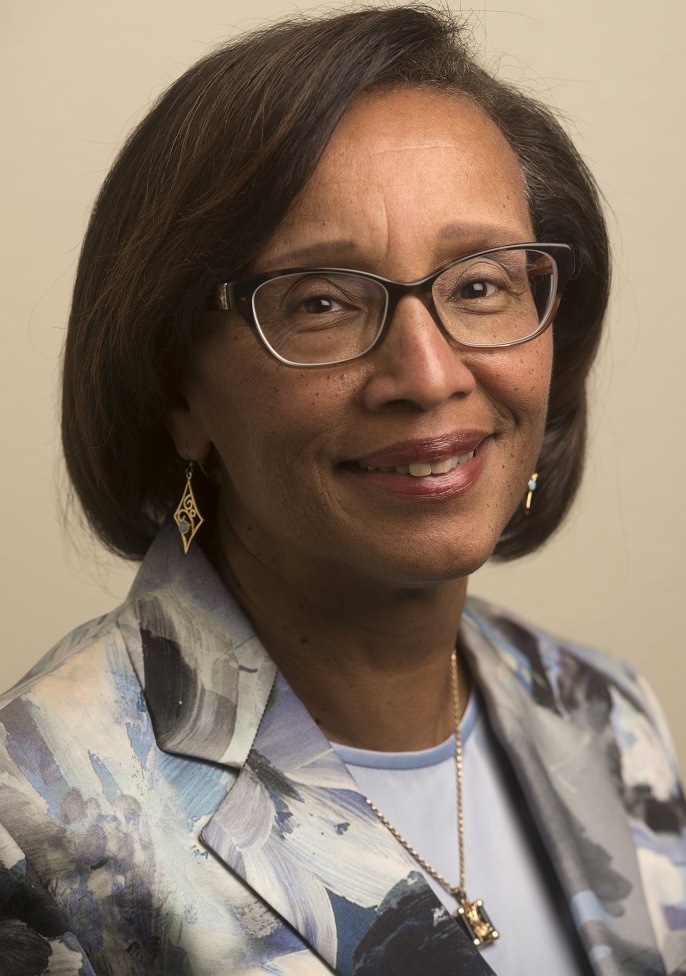 Helene Dillard
Helene Dillard
Distinguished Professor Emeritus, Plant Sciences, University of California, Davis
Helene R. Dillard was appointed dean of the College of Agricultural and Environmental Sciences at UC Davis in January 2014. Dillard is the chief academic and administrative officer of the college and oversees fifteen departments, several centers and institutes, more than 7,000 undergraduate students, and 380+ faculty. In addition to her responsibilities as dean, she has programmatic responsibilities for the college’s Agricultural Experiment Station and Cooperative Extension. Dillard has national and international leadership experience, including invited consultations, presentations and scientific exchanges in China, Central America (Honduras, Nicaragua), South America (Argentina, Brazil, Chile), the European Union (the Netherlands, Sweden, United Kingdom) and Zimbabwe. Prior to her appointment at UC Davis, Dillard was on the faculty at Cornell University from 1984 to 2014 as a professor of plant pathology, carrying a 50 percent research and 50 percent extension assignment. Her research focused on the biology, ecology, and management of fungal pathogens that cause diseases in vegetable crops. Her interests include sustainable disease management strategies, integrated pest management, epidemiology and host/pathogen/ environment interactions. Dillard was recognized for her contributions in plant pathology by the American Phytopathological Society (APS), receiving the Excellence in Extension Award in 1992 and being named an APS fellow in 2006. She received the New York Farmers Medal and the Outstanding Faculty Award from CALS in 2013. Helene Dillard was born and raised in San Francisco, California. She completed her B.S. degree in biology of natural resources at UC Berkeley, an M.S. degree in soil science at UC Davis, and a Ph.D. degree in plant pathology at UC Davis.
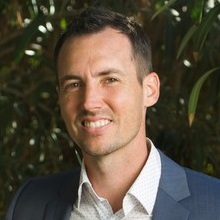 Benjamin Houlton
Benjamin Houlton
Professor and Chancellor's Fellow, Land, Air and Water Resources, University of California, Davis
Benjamin Houlton studied chemistry (B.S.) and environmental engineering (M.S.) before receiving his doctorate in ecology and evolutionary biology from Princeton University in 2005. He then spent two years working as a postdoctoral scholar at Stanford University and the Carnegie Institution for Science, Department of Global Ecology, where he also forged collaborations with CSIRO's Division of Marine and Atmospheric Research in Australia. Currently, a Professor of Global Environmental Studies at the University of California – Davis, Ben holds the distinction of Chancellor's Fellow and was recently appointed Director of the John Muir Institute of the Environment. Ben’s research interests include ecosystem processes, climate change and the growing risks of human alterations to the global carbon, nitrogen, phosphorus cycles for enhanced energy and food production. At the John Muir Institute of the Environment, Ben catalyzes research discovery across more than 300 faculty-experts from all of UC Davis’s colleges and professional schools with the goal of devising innovative solutions to the environmental sustainability challenges of the 21st century. Most recently, Ben has been spear-heading the new “OneClimate” initiative, which envisions a inter-disciplinary, team-based approach to reduce greenhouse gas pollution and help people and ecosystems adapt to an uncertain climate future. Ben's research has appeared in leading scientific journals such as Science, Nature, Nature Climate Change, and the Proceedings of the National Academy of Sciences and been covered by news media including Newsweek, New York Times, Scientific American, The Christian Science Monitor, Discovery News, MSNBC/Today, Nature, Science, and BBC's "The Naked Scientists." He has appeared as a guest on NPR's "Morning Edition", MSNBC's "All In with Chris Hayes" and local TV and radio shows.
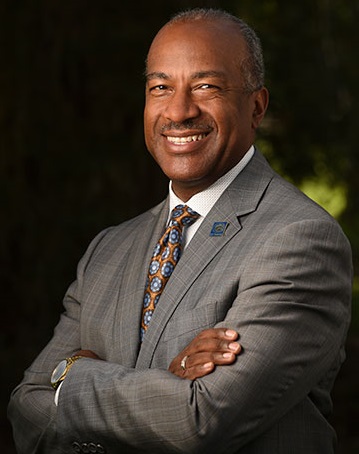 Gary May
Gary May
Chancellor, University of California, Davis
Gary S. May became UC Davis’ seventh chancellor on Aug. 1, 2017. He leads the most comprehensive campus in the University of California system, with four colleges and six professional schools that offer 104 undergraduate majors and 96 graduate and professional degrees. UC Davis enrolls about 37,000 students, brings in nearly $800 million annually in sponsored research and contributes at least $8 billion to the California economy each year. An accomplished scholar and engineer, May came to UC Davis from the Georgia Institute of Technology in Atlanta, where he had been for nearly three decades, most recently as dean of the institute’s College of Engineering — the largest and most diverse school of its kind in the nation. Prior to being dean, May was the Steve W. Chaddick Chair of Georgia Tech’s School of Electrical and Computer Engineering and, previous to that, he was the executive assistant to then-Georgia Tech President G. Wayne Clough. In 2015, President Obama honored him with the Presidential Award for Excellence in STEM Mentoring. In February 2018, May was elected as a member of the National Academy of Engineering for his innovations in educational programs for underrepresented groups in engineering and his contributions to semiconductor manufacturing research. May has won numerous other honors for his research in computer-aided manufacturing of integrated circuits and has authored more than 200 technical publications, contributed to 15 books and holds a patent in this topic.
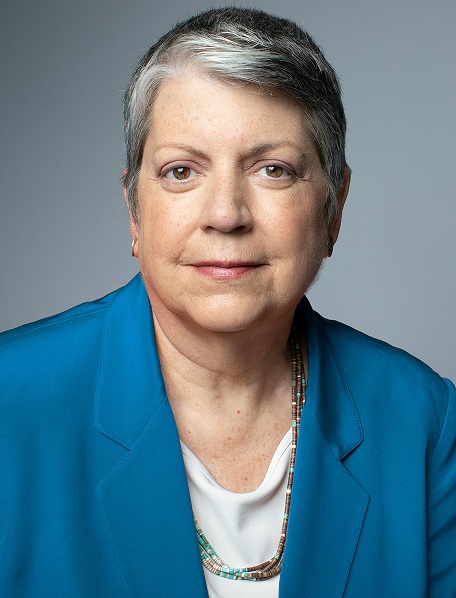 Janet Napolitano
Janet Napolitano
President, University of California
Janet Napolitano is the 20th president of the University of California, and the first woman to serve in this role. She leads a university system of 10 campuses, five medical centers, three affiliated national laboratories, and a statewide agriculture and natural resources program. A distinguished public servant, Napolitano served as the U.S. secretary of homeland security from 2009 to 2013, as governor of Arizona from 2003 to 2009, as attorney general of Arizona from 1998 to 2003, and as U.S. attorney for the District of Arizona from 1993 to 1997. Since she became UC president in September 2013, Napolitano has been a steadfast advocate for California students, working to stabilize in-state tuition and to enroll historic numbers of California undergraduates. Napolitano has upheld the university’s legacy of leadership on global climate action, putting UC on a path to 100 percent reliance on clean electricity across all campuses and medical centers by 2025, the same year the university aims to achieve systemwide carbon neutrality. In 2017, she also spearheaded the formation of the University Climate Change Coalition, or UC3. This group of 21 leading North American research universities and systems is working to help local communities achieve their climate goals and accelerate the transition to a low-carbon future. Napolitano earned a B.S. degree (summa cum laude in political science) in 1979 from Santa Clara University, where she was Phi Beta Kappa, a Truman Scholar and the university’s first female valedictorian. She received her law degree in 1983 from the University of Virginia School of Law.
